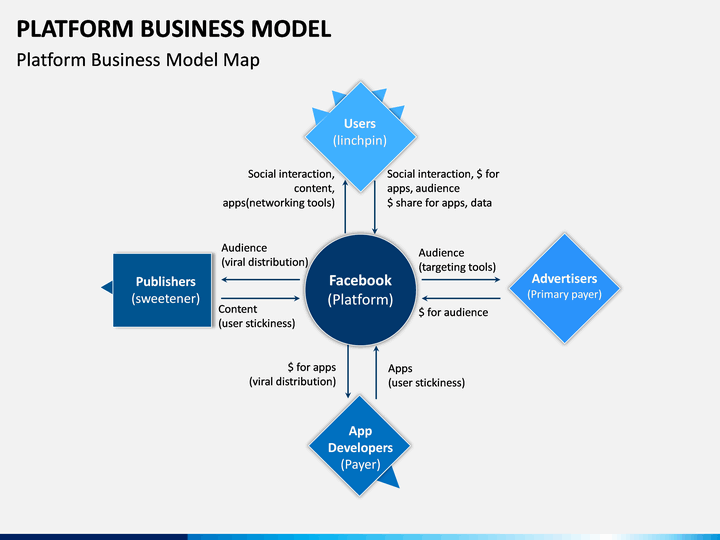
Platform Business Model PowerPoint Template
A platform is a kind of business model that takes advantage of ecosystems, facilitating transactions between large networks of users such as sellers and buyers, drivers and riders, hosts and guests. The dramatic digital advances that make ecosystems an increasingly viable way to coordinate economic activity also make platforms possible.

Platform Business Model Insights Beyond Now
The platform business model is incredibly powerful and lucrative. Long-term, these types of businesses will continue to dominate the market. Even if your business is a traditional, linear business, it's worth considering how the platform could expand or improve your current business model.
(71) Why platform businesses need a business model canvas of their own?
Building a platform business model - Don't start too early. Platforms need time, strategic long-term thinking and some resources to develop and before you could even turn to monetization. The main focus at the beginning should be on attracting and growing the critical sides of the user base (the hard-to-reach sides) of the platform.
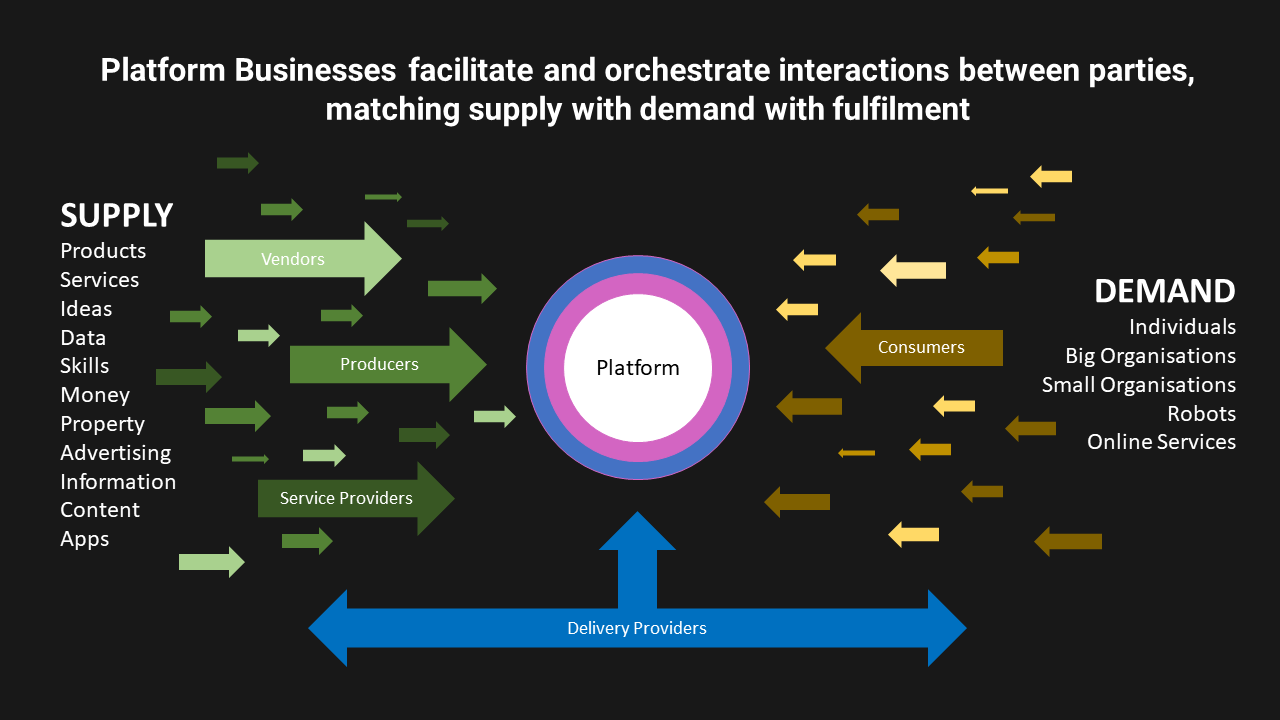
4 Types of platform business models (2022)
A platform business model is a type of business model where a company designs a digital platform that connects two or more groups of users in a way that creates value for all of them.

Digital Business Platforms Support Better Customer Experiences
What Is a Platform-Based Business Model? To get to the heart of what makes a platform-based business model successful, consider the common denominator of companies such as Uber, Airbnb, and YouTube.
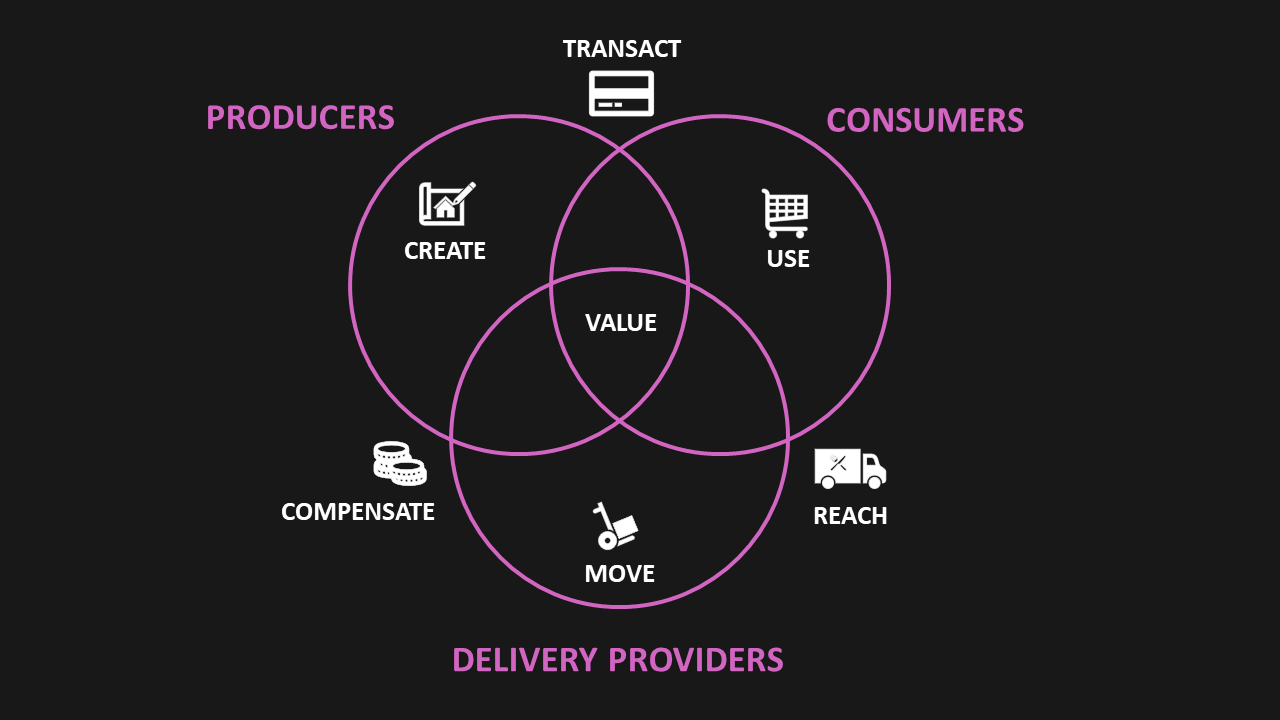
4 Types of platform business models (2022)
of the variety of business model definitions. A recent review by Täuscher and Abdelkafi (2017) reveals that the variety of competing understandings can be classified into three business model views, but that literature is far from converging towards a common understanding of the business model concept. The same holds true for business model

Platform Business Model Insights Beyond Now
customer, platform business modules are a little different. Rather than focusing on generating revenues from producing and selling goods/services on a transactional basis, the platform business model facilitates valuable connections among users. A platform business may still produce products but they can differentiate themselves by
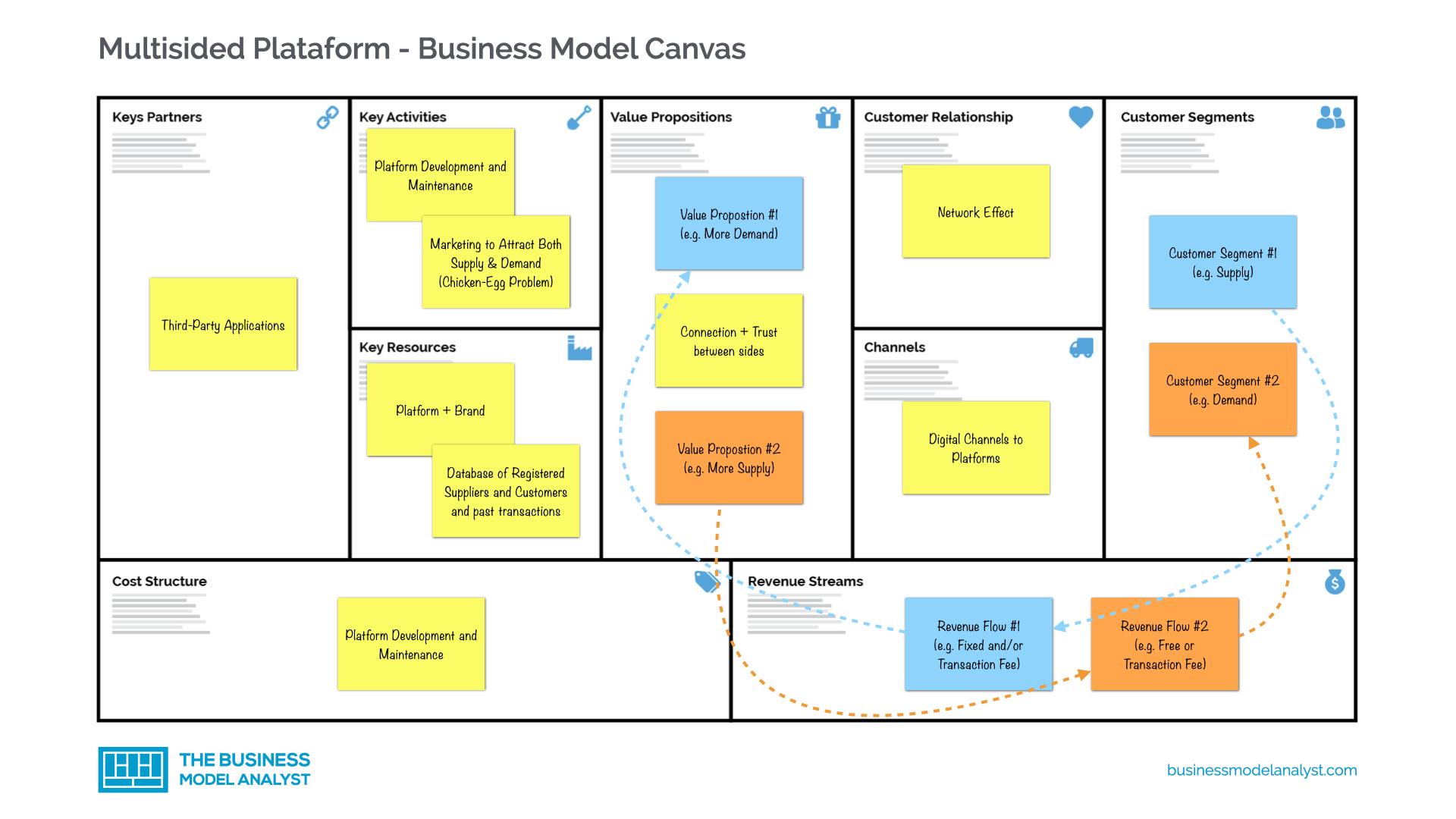
Multisided Platform Business Model Canvas
Jun 22, 2016,09:00am EDT Share to Facebook Share to Twitter Share to Linkedin Decades ago, a fellow graduate student shared his dream with me of writing software used by thousands of people. Now,.

Platform Generation Platform Business Model Canvas & digital economy
PLATFORM BUSINESS MODEL DEFINITION: a business model that creates value by facilitating exchanges between two or more interdependent groups, usually consumers and producers. Like Facebook, Uber, or Alibaba, these businesses don't directly create and control inventory via a supply chain the way linear businesses do.
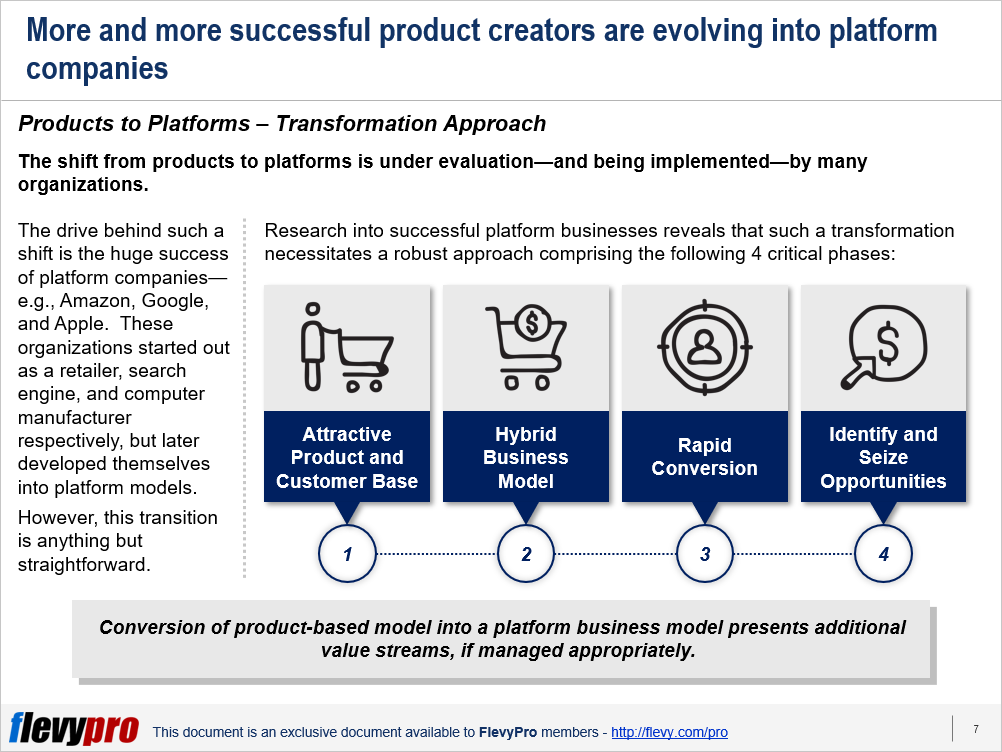
Let’s dive deeper into the first two phases of the approach, for now.
A platform business model is a way of creating value by facilitating interactions between two or more groups of users, usually through a digital platform. Examples of platform businesses.
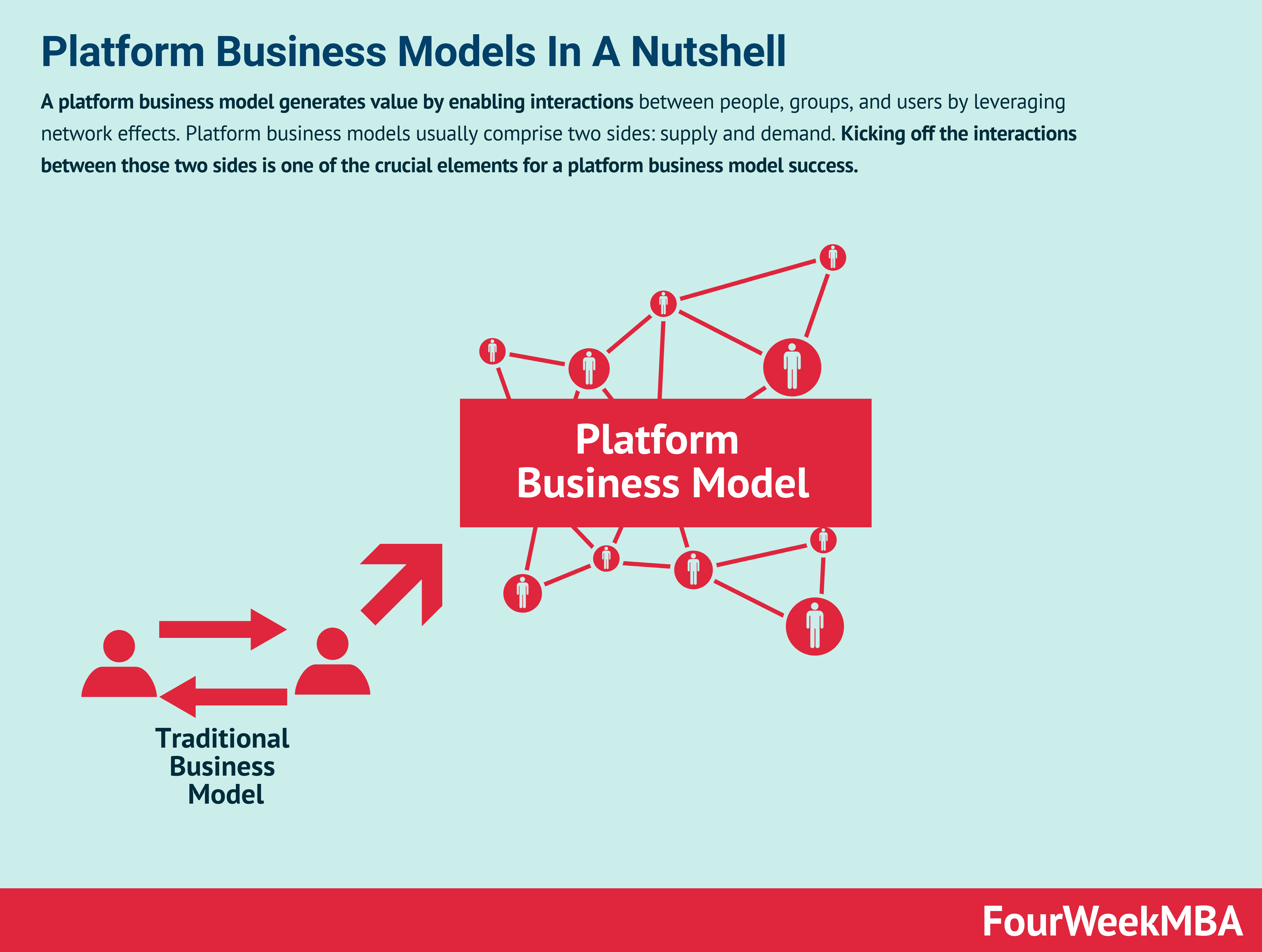
Platform Business Models In A Nutshell FourWeekMBA
The power of a platform business model is built on the ability to harness network effects, a phenomenon where the value of a service or product increases with the number of participants. There are.

Why Platform Innovation is the Future of the Professional Services Industry
Platforms Business model Design Complexity Competition Digitalization Introduction The emergence of wireless and Internet technologies has brought opportunities for the creation of new organizational forms ( Eckhardt et al., 2018; Iansiti and Lakhani, 2017; McIntyre and Srinivasan, 2017; Parker and Van Alstyne, 2018; Teece, 2018 ).
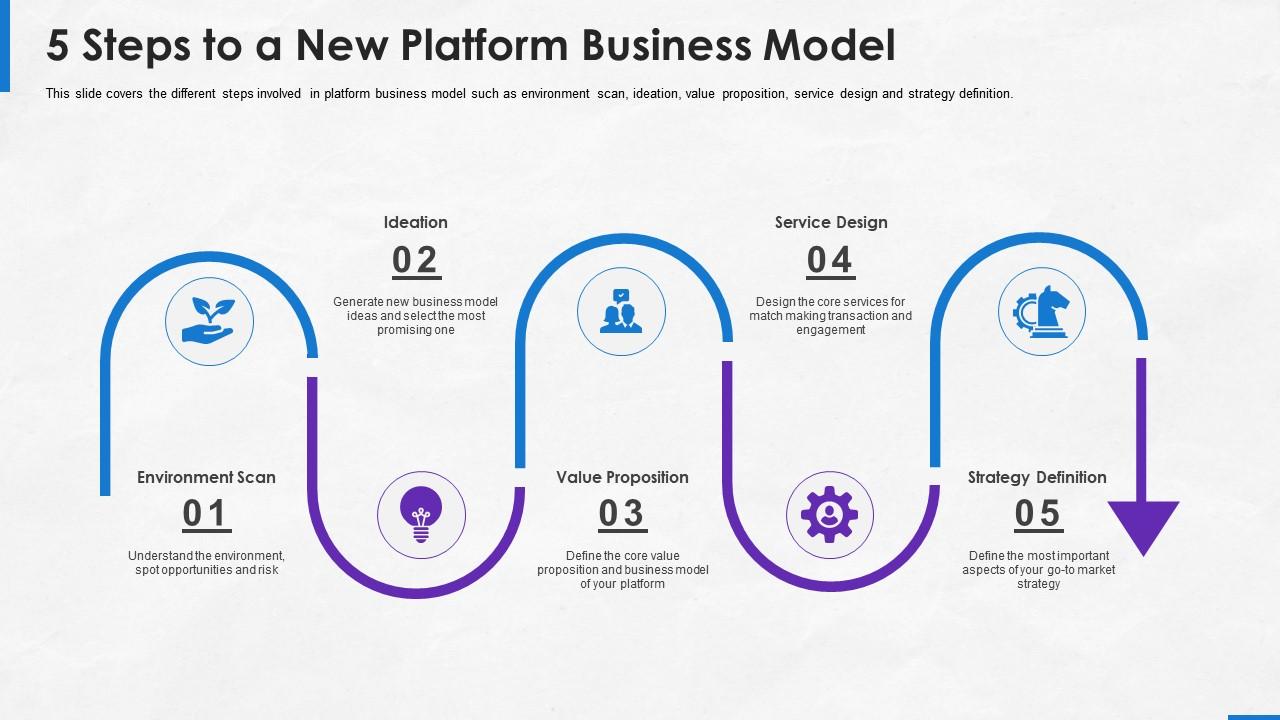
Implementing Platform Business Model In The Company 5 Steps To A New Platform Business Model
A platform business model generates value by enabling interactions between people, groups, and users by leveraging network effects. Platform business models usually comprise two sides: supply and demand. Kicking off the interactions between those two sides is one of the crucial elements for a platform business model success. Table of Contents

Platform business model with its core elements Download Scientific Diagram
A platform business model is a type of business model that facilitates exchanges between two or more interdependent groups, usually consumers and producers or service providers. It typically creates value by enabling these two groups to interact with each other more efficiently and effectively than they would be able to do on their own.

Dissecting Platform Business Models With Nick Johnson [Lecture] FourWeekMBA
A platform strategy is an approach to entering a market which revolves around the task of allowing platform participants to benefit from the presence of others. In traditional competitive strategy, it is generally assumed that customers can determine their willingness to pay for the product or service independently.

Platform Business Model What is it? Definition Explanation
Platform Business Models Home Book Authors: R. Srinivasan Offers a field guide for setting up platform firms, leveraging and capturing value from network effects and complementary ecosystems Provides specific frameworks for analyzing platform business firms Examines the influence of platform firms in the post-digital economies